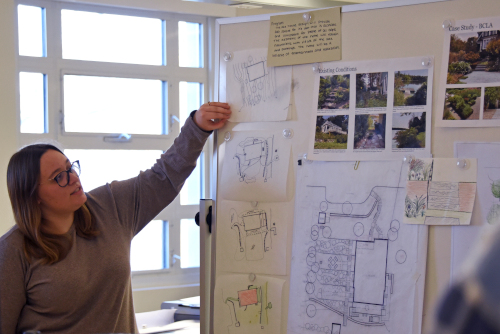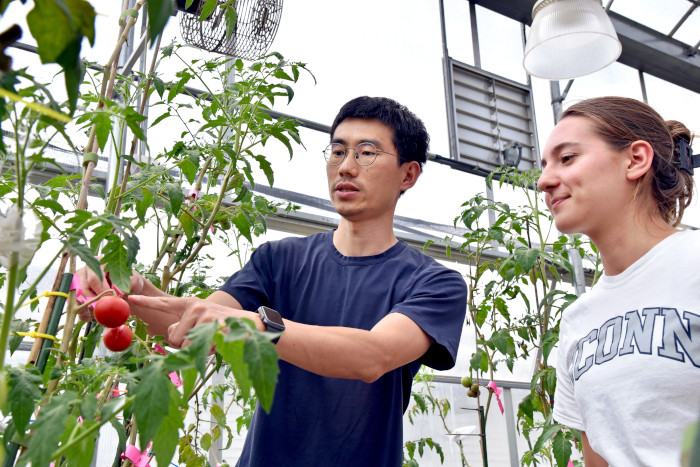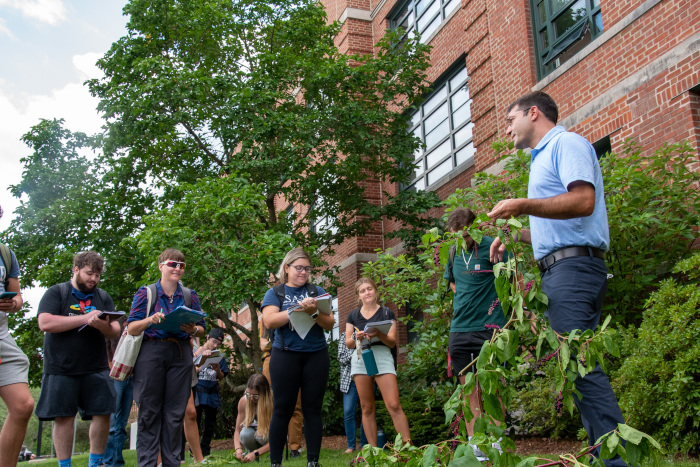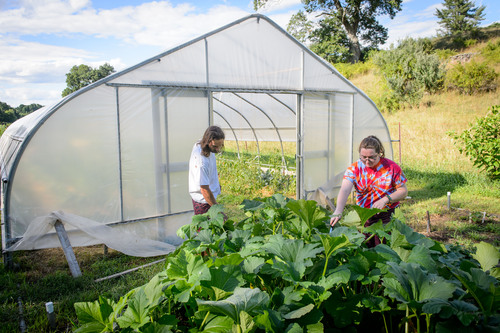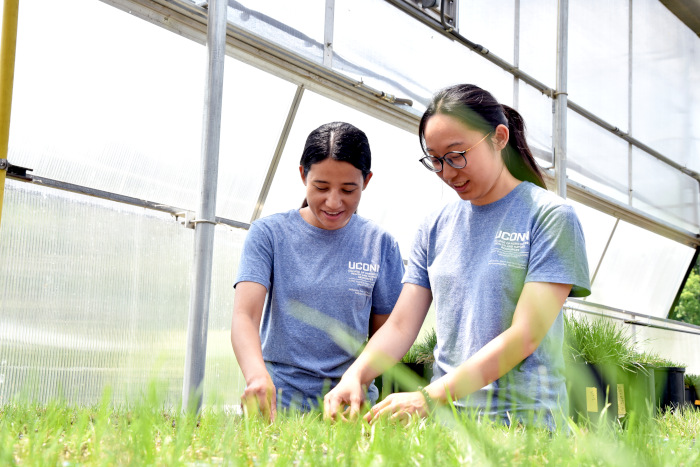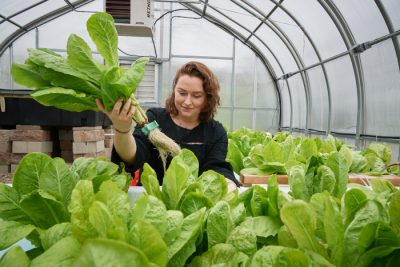Be a Part of Something That Lets You Grow
The Department of Plant Science and Landscape Architecture (PSLA) prepares future leaders by providing a dynamic, inclusive environment where you can thrive. You’ll learn from dedicated educators in cutting-edge fields like cannabis horticulture, plant genomics, and urban landscape design, equipping you to address both local and global challenges.
We offer two Bachelor of Science degrees, a 2-year Associate of Applied Science degree, and advanced degrees (MS, PhD) for qualified candidates.
As a PSLA student, you’ll gain hands-on experience through internships, as well as access to our research farm and faculty-led labs, helping you apply your learning to real-world challenges and preparing you for successful careers in plant science and landscape architecture.
Learn more about our Plant Science Research and Education Farm:
Undergraduate Programs
Bachelor of Science in Landscape Architecture
We design, research, teach, and do public outreach, imagining vibrant communities and creating places of value; while protecting and restoring our natural and cultural resources. We strive toward actionable and collaborative practices that address climate justice and social equity. If you are a spatial thinker and you love art and design and you love plants and horticulture, then this is the program for you.
Bachelor of Science in Plant Science
The Plant Science major focuses on sustainable plant production, plant biology, soil science, pest management, and the environmental impacts of agricultural systems. If you're passionate about plants and committed to creating sustainable solutions, this major is for you! You’ll enjoy small classes, personalized advising, and hands-on experience through internships and research.
Associate of Applied Science in Plant Science
The Plant Science program in the Ratcliffe Hicks School of Agriculture is a two-year fast-track path to your career. With concentrations in Ornamental Horticulture, Turfgrass Management, and Sustainable Crop Production, the program offers a diverse curriculum, including courses in soil science, garden center management, pest control, vegetable production, and more. You’ll gain practical skills through internships and career networking, preparing you to jumpstart your career in plant science.
Minors
- Ornamental Horticulture
- Integrated Pest Management
- Turfgrass Management
- Cannabis Cultivation
- Agricultural Biotechnology
- Sustainable Food Crop Production
- Sustainable Community Food Systems
Graduate Programs
MS and PhD in Plant Science
We offer the degrees Master of Science (MS) and Doctor of Philosophy (PhD). The MS and PhD degrees may be awarded in Plant Science, with concentrations in Agronomy, Horticulture, Landscape Architecture, Plant Biotechnology, Plant Breeding, Plant Environment, Plant Health, and Soil Science.
Student Clubs & Organizations
Explore extracurricular activities in our department!
- Horticulture Club
- Turf Club
- Cannabis Club
- Beekeeping Club
- Women in Soil Ecology
- UConn Student Chapter of the American Society of Landscape Architects
- Graduate Student Association
Join our clubs to get involved in plant sales, field trips, networking opportunities, gardening, hands-on educational activities, discussions and more!
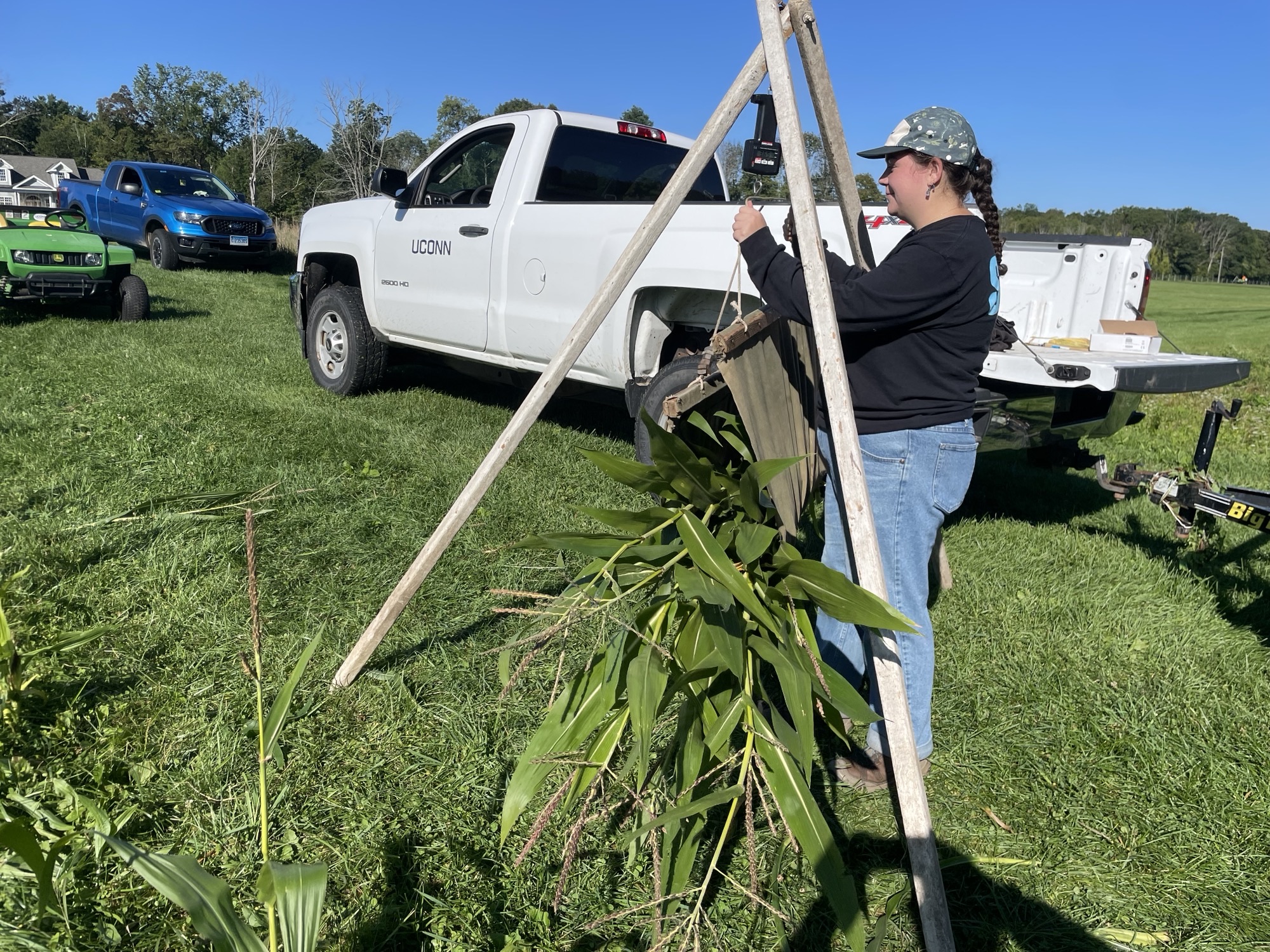
Scholarships & Financial Aid
The College of Agriculture, Health and Natural Resources offers over $800,000 annually in scholarship awards to students in CAHNR and the Ratcliffe Hicks School of Agriculture. View our Scholarships page to see a list of outside organizations and foundations that offer scholarships to students majoring in our programs.

